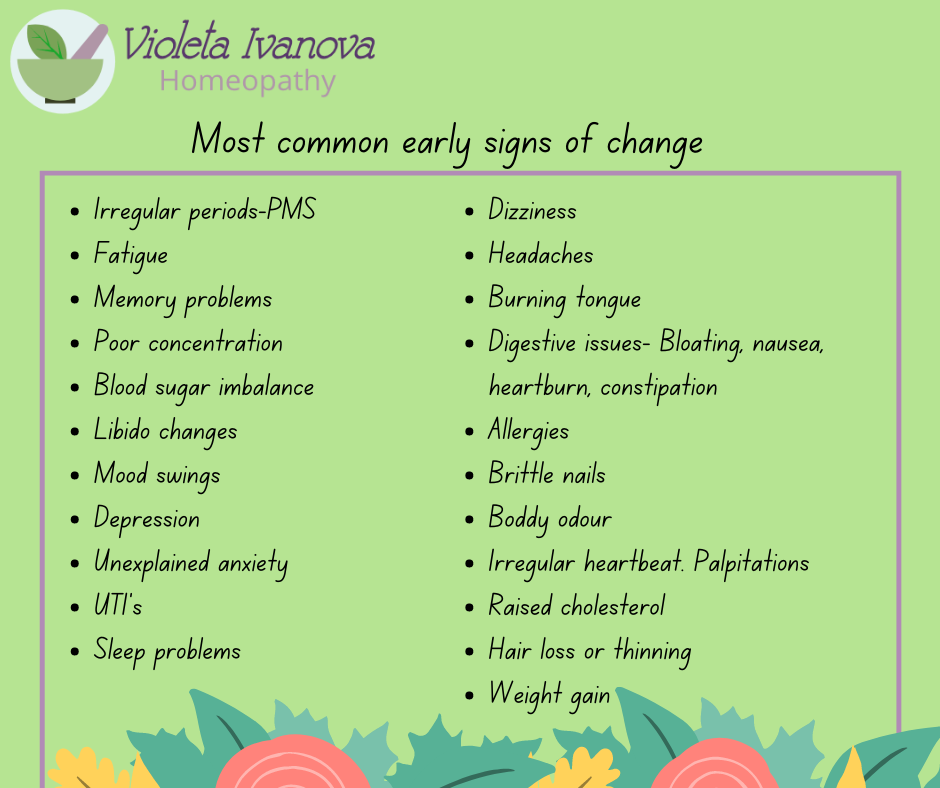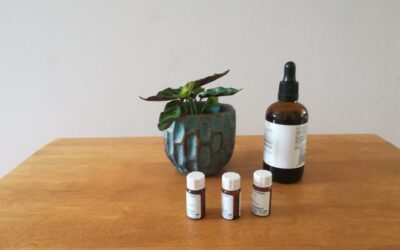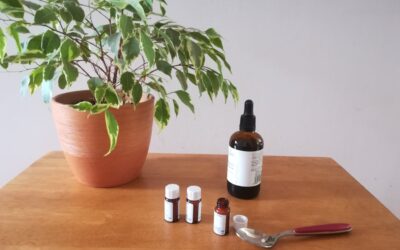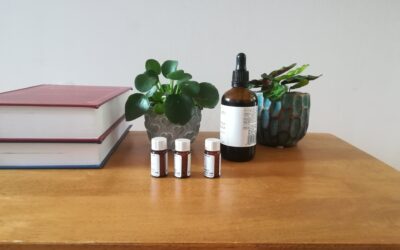About Menopause
Perimenopause
Perimenopause starts several years before menopause. It can last 4 to 8 years. The average age for perimenopause is the mid-40s to early 50s. It is often the time when you experience the most common symptoms of menopause. At perimenopause, you will still have periods so that can be confusing.
The following symptoms are the first sign that you may be in perimenopause:
- Anxiety and low confidence
- Irritability and sometimes rage
- Change in the monthly period patterns- sometimes skipping, sometimes very heavy
- Tender breast
- Intermittent hot flushes and night sweats
- Vaginal dryness- painful sex and low libido
- Urinary leakage when you cough, sneeze or run
- Fatigue and trouble sleeping- either difficulty falling asleep or waking at night
Most of us find that those symptoms come and go and the periods are still mainly present. Everyone is different and no two women will experience the perimenopause the same.
Perimenopause lasts until full menopause, the time when the ovaries stop producing eggs.

Menopause
Menopause is the permanent end of menstruation and fertility. For many women, this can be a time of changing identity and some troublesome symptoms. The average age for menopause in the UK is 51.
The main symptoms experienced are hot flushes, bladder problems such as cystitis, depressed mood, reduced sex drive, forgetfulness, lower concentration, weight gain, and joint aches. After 12 months, a woman who has not had any periods is commonly said to have gone through menopause and post-menopausal.
Menopause is part of the natural ageing process and occurs when the ovaries stop producing eggs. As we age, our sex hormones change and rebalance. The production of oestrogen, progesterone and testosterone gradually decreases. The fall in oestrogen levels is about 50%, testosterone falls with 50%, and Progesterone falls with 70% to 90%. This disbalance cause the symptoms of menopause.
Hot flushes are by far the most common symptom, and 80% of all women experiencing it.
Common symptoms of hot flashes include a sudden, brief, periodic increase in body temperature, sweating and, in some cases, an increase in heart rate.
Many women experience joint stiffness, aches and pain.
While this symptom can be profoundly annoying, depending on how often and how intense it is and how much sleep you lose, it’s great to know that research[1] and experience show that homeopathy can help make this life transition far more comfortable.
In China, menopause is referred to as the ‘second spring’. It is seen as a positive time of creativity and new beginnings when women often find a new voice.
Preparation for the menopause
Physically our bodies may be under extra pressure during the menopausal years, as the hormones try to rebalance. Our bodies are designed for this process. However if we are under great pressure from the way we are living or have been living during the previous years, we may struggle. Regular exercise and good nutrition are essential.
Our attitude to these changes will have an impact on how we experience and cope with the menopausal years. Meditation and mindfulness can help the transition.
Seeing a homeopath can help as the remedies can rebalance the hormones and deal with the difficult symptoms you are experiencing.


Postmenopause
After no periods for 12 months, we go to post-menopause. During this period the menopausal symptoms continue, but they are reducing in intensity until ceased. The postmenopausal period lasts an average of 4 to 5 years, but in some cases longer.
Premature menopause and early menopause
If you are experiencing menopause before the age of 40, you are in premature menopause. It can take place at any time between the teenage years up to 40. This can be a traumatic experience for young women.
Early menopause applies to the same condition when the age is between 40-45.
In most cases, there is no known reason for premature or early menopause. Surgical removal of ovaries and hysterectomy can lead to it. Medical treatment as chemotherapy and radiotherapy as well. A family history of premature or early menopause can be a factor, as well as high-stress levels and life events.
The symptoms are the same as in menopause but more severe and acute.
As it happens unexpectedly, in most cases, there is no preparation for it.
My Blog
How to achieve better health
Most people would like better health. This post is for people willing to work on their lifestyle...
Why so many people have candida overgrowth?
I am astonished to see how widespread Candida's overgrowth is. If you are reading this blog, you...
Homeopathy for fear of flying
Homeopathy can help you overcome the fear of flying. Aviophobia is quite common, and while the...
Homeopathy works by restoring health and balance to the patient using individualised natural remedies to treat the whole person, not the disease.
Homeopathic consultations are by video call wherever you are in the world. Choose a time that suits you and book straight into my diary. Book a 15-minute introduction call and talk with Violeta about how homeopathy can help you.



